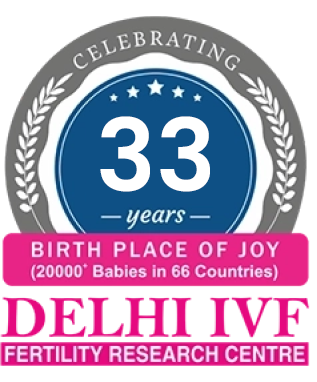What Is Endometriosis?
Endometriosis is a very common medical condition which affects women in their reproductive ages. The cause of endometriosis is still mostly undefined, and this medical condition includes the endometrium (cells which makes the internal lining of the uterine cavity) forming outside the uterus, mostly on ovaries, fallopian tubes, bowel, and the pelvic tissue linings.
Endometriosis affects women’s fertility through various ways
The endometrial lining of the endometrial cavity of the uterus is formed & shed every month normally in the women’s menstrual cycle. In endometriosis, however, this bleeding doesn’t find an exit way and instead penetrates the other way into tubes/ovaries/and peritoneal cavity. The immune system of women finds that bleeding as an “open wound”, and treat it the same way, resulting in scarring, in a process same as the healing after a skin cut. By the time, accumulated scar tissues cause adhesions and often extreme pain especially during periods. When affecting the tubes, it may also negatively affect fertility and lead to the requirement of infertility treatments.
This condition affects fertility in many ways!
Reports suggest that the rates of endometriosis vary from patient to patient, but the conclusion is that approx. 5-10% of all women suffer from this gynaecological condition. Endometriosis is very much common in infertile women.
What are the Causes of Endometriosis?
As we said above, the causes of endometriosis are still not defined but there are some studies that suggest the possible causes which may differ from patient to patient.
- Hormones– Identically, the female hormone estrogen is observed to promote endometriosis.
- Genetics– Endometriosis goes on with generation to generation in a family. If your mother or sister had endometriosis then you may have the six-time higher chances of getting endometriosis.
- Menstrual Period Issues– Some women face backward period flow, in which some of the tissue shed during a menstrual cycle flows backward via fallopian tubes and into the pelvis.
- Environmental Exposures– Exposure to industrial chemicals and compounds before the birth may lead to an increased risk of endometriosis in the future.
Other factors that may develop risk of endometriosis are:
- Early age start of the menstrual period (before 11 yrs)
- Heavy menstrual periods that last for more than a week
What are the Symptoms You May Experience?
- Extreme Menstrual cramps, unrelieved with the help of NSAIDS
- Long lasting pelvic and lower-back pain
- Heavy menstrual bleeding where the pad needs to be changed every 1 to 2 hours
- Constipation, diarrhea, bloating, bowel and urinary problems including pain
- Stool or urine with blood
- Vomiting and Nausea
- Severe Pain during intercourse
How Endometriosis Leads to Infertility?

How Does Endometriosis Impact IVF Success Rates?
Endometriosis affects IVF unfavorably, from diminishing the count of eggs at the time of retrieval to bad egg quality, and reduces implantation and pregnancy rates. However, IVF allows most of the endometriosis patients to still be able to conceive.
What is Adenomyosis?
Adenomyosis refers to a condition in which the inner lining of the uterus (endometrium) breaks through the muscle wall of the uterus (myometrium). Adenomyosis can result in lower abdominal pressure, menstrual cramps, and bloating before periods and can also result in heavy periods. The condition can be located in different areas of the uterus or localized in just one spot.
If often leads to infertility and sometimes early loss of pregnancy due to various reasons:
- Failure of proper development of endometrium (uterine lining)
- Failure of implantation
- Early loss of pregnancy
Who Suffers from Adenomyosis?
It is a very common condition. Mostly, it is identified in the middle-aged women. As per some studies, it is also suggested that women who have had prior surgery of the uterus may face Adenomyosis.
A lot of treatment options are available for these kinds of patients; depending upon the extent of the disease and other factors;
- Medical treatment: long agonist injections, various hormonal protocols
- Surgical treatment: adenomyomectomy, excision surgery, etc.
- IVF-ICSI
In very severe cases of adenomyosis, when implantation failure is recurrent, Altruistic Surrogacy is an option.
Why Endometriosis And IVF Treatment in India at Delhi IVF?
Delhi IVF has experience and specialization of 25 years and legacy of best & successful pioneering infertility lab in India with highly uniform success rates. We have been the pioneers and have always been the number one to have a breakthrough in the techniques, technology, and specialization in any field of Infertility in the last 25 years. That’s what our research centre has achieved so far & we promise to continuously shine in the future too.
Our specialists, doctors, embryologists and nurses are given special training time to time for various infertility treatments including endometriosis treatment in Delhi, India and recent developments in this field.
We have more than 2600 (approx.) patients of moderate to severe endometriosis who have had successful IVF treatment at Delhi IVF in the last 25 years.
Women with early onset endometriosis (with family history) also have the option of oocyte/egg freezing before the progression of endometriosis to cause infertility.

 Your Journey to Parenthood Begins with us!
Your Journey to Parenthood Begins with us!